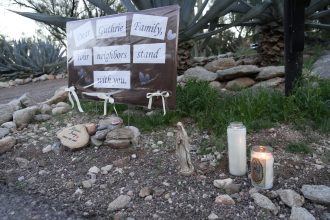The quiet hum of a Milwaukee evening was shattered on Wednesday, August 13, 2025, when gunfire erupted near North 42nd Place and West Hope Avenue, claiming the life of 23-year-old De-Lisha L. Dunmore. The vibrant young woman, known for her resilience and spirit, was found by police suffering from gunshot wounds in a residential corner of the city’s north side. Despite desperate efforts to save her, she was pronounced dead at the scene, leaving a community reeling and a family grappling with unimaginable grief.
The tragedy unfolded just before 7:30 p.m., as multiple reports of gunfire sent officers racing to the scene. Neighbors, rattled by the sharp cracks of gunshots, described a chaotic moment that disrupted the calm of their close-knit neighborhood. The area, a patchwork of modest homes and tree-lined streets, became a somber stage for yet another chapter in Milwaukee’s struggle with gun violence. Residents recounted hearing a barrage of shots, a chilling prelude to the discovery of Dunmore’s lifeless body.


As detectives descended on the scene, they began piecing together the fragments of a puzzle that remains unsolved. No suspect has been identified, and details about the circumstances—whether the shooting was targeted, random, or fueled by a specific motive—remain elusive. The absence of a suspect description has only deepened the mystery, leaving authorities to lean heavily on forensic evidence, witness accounts, and any available surveillance footage from nearby cameras. Each frame, each clue, is a potential key to unlocking the truth behind this devastating loss.
De-Lisha’s death is not an isolated tragedy for her family. Less than a year ago, in September 2024, her younger sister, 20-year-old Talise Dunmore, was killed in a horrific hit-and-run crash near 76th Street and Good Hope Road. The sisters, inseparable in life, were struck by a speeding car driven by 34-year-old Stephanie Sykes, who was later convicted of homicide by intoxicated use of a vehicle. Talise died at the scene, while De-Lisha, though gravely injured with broken bones, fought her way to recovery. The community rallied around her, celebrating her strength at a vigil held in Talise’s honor. Now, the Dunmore family faces the unbearable pain of losing another daughter, sister, and friend, compounding their sorrow in a way that defies comprehension.
The Milwaukee Police Department is working tirelessly to bring justice to De-Lisha’s memory. Detectives are combing through evidence, chasing leads, and urging the public to come forward with any information, no matter how small. “Every detail counts,” authorities emphasize, hopeful that a tip could break the case wide open. They’ve provided multiple avenues for cooperation: direct calls to the Milwaukee Police at 414-935-7360, or anonymous tips through Crime Stoppers at 414-224-TIPS or the P3 Tips mobile app, where informants may be eligible for cash rewards if their information leads to an arrest.
The shooting has sent ripples of fear and frustration through the neighborhood, where residents are all too familiar with the specter of gun violence. De-Lisha’s death adds to Milwaukee’s rising homicide rate in 2025, a grim statistic that has galvanized local leaders and community organizations to redouble their efforts in violence prevention. Police have increased patrols in the area, their presence a visible reminder of the urgency to curb the tide of bloodshed. Yet, they acknowledge that solving cases like this hinges on the courage of witnesses willing to step forward.
De-Lisha L. Dunmore was more than a name in a news report. She was a survivor, a sister, a young woman with dreams that stretched far beyond the streets of Milwaukee. Her life, though cut short, leaves an indelible mark on those who knew her. As the city mourns, her family clings to memories of her strength—memories now intertwined with the loss of Talise. The community, too, stands united, demanding justice and an end to the violence that has stolen so much.
The investigation presses on, a beacon of hope for closure in a city that refuses to let De-Lisha’s light fade. Her story, like her sister’s, is a call to action—a reminder that behind every statistic is a life, a family, and a community yearning for peace.



